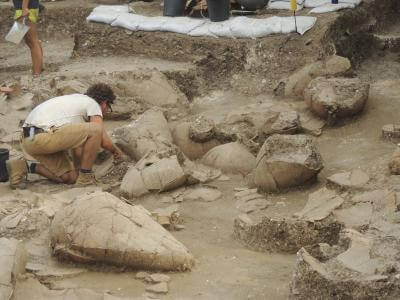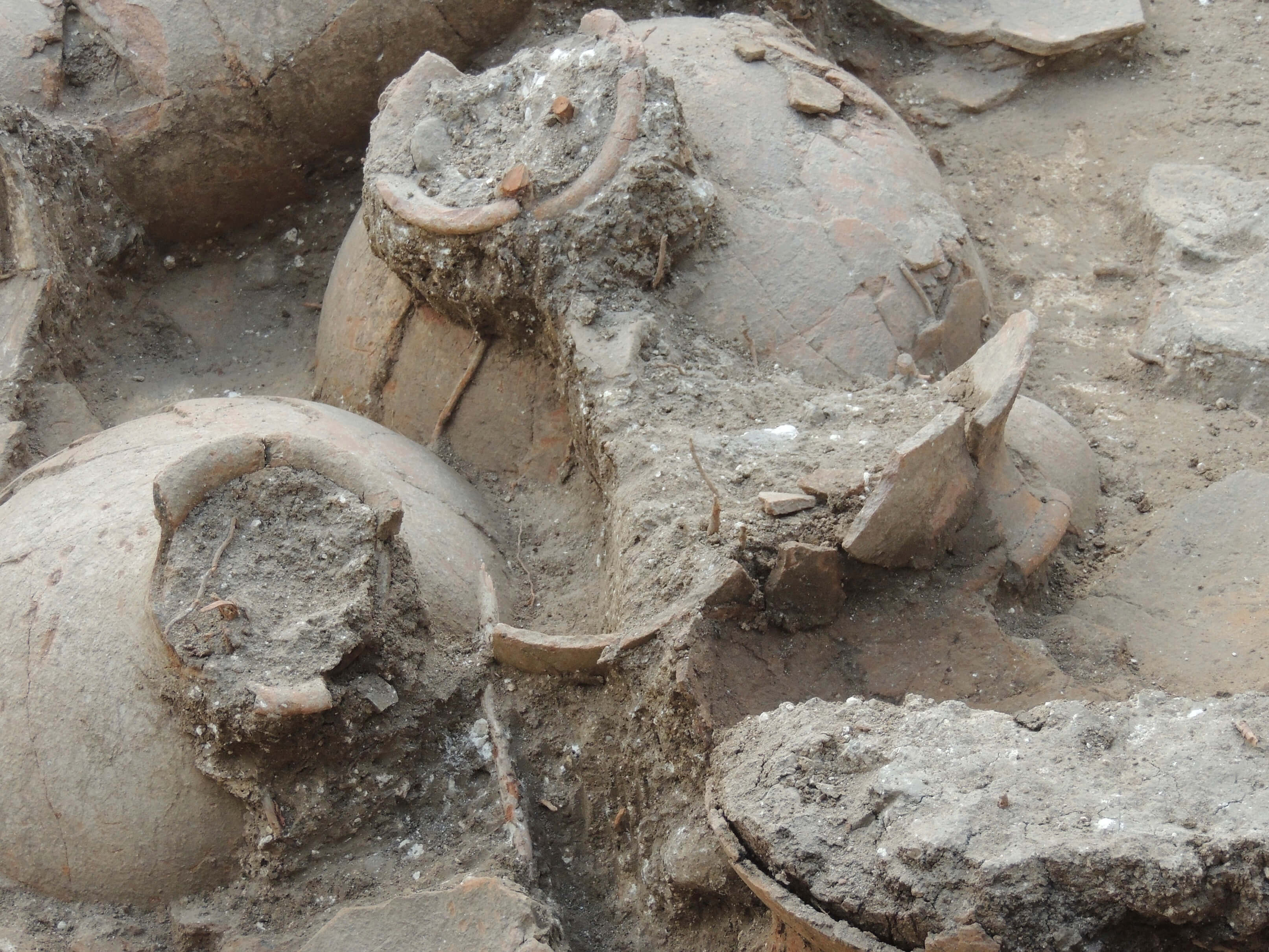The storage room could have held 2,000 liters of strong and sweet wine, a chemistry expert analyzed the composition of the wine among the remains of the jugs and found a remarkable consistency in the recipe, a sign that this was an industrial facility

Do you like to drink wine flavored with mint and a dash of psychotropic resin? The ancient Canaanites did this over 3,000 years ago.
Archaeologists uncovered what appears to be the oldest and largest wine cellar in the Near East, where 40 jars were discovered, each of which could hold 50 liters of strong, sweet wine. The cellar was discovered in the remains of a palace of the Canaanite city that was in the place where Tel Kabri in the north is today. The site dates back to 1,700 BC and is not far from today's Israeli wineries.
"This is a very significant find - this is a wine cellar that, to the best of our knowledge, has no equal in its age and size," says Eric Klein from the Department of Classical Languages and Cultures and the Near East at George Washington University. Klein and Asaf Yasser-Landau from the Department of Maritime Civilizations at the University of Haifa managed the excavations together with Andreu Koch, Assistant Professor of Classical Studies at Brandeis University in the USA. The team's findings were presented yesterday (Friday) at the annual conference of the American Association of Schools of Near Eastern Studies held in Baltimore.
This time also focused on the palace of the rulers of the city, which was established about 3850 years ago, during the Middle Bronze Age, and existed for at least 300 years, and at its peak covered an area of about 6000 square meters, with a construction of at least two floors.

According to Dr. Yasser-Landau, in previous seasons the halls used by the rulers of the palace for huge feasts were exposed, including leftovers for huge meat feasts for more than 500 people, each of whom enjoyed cuts of about 500 grams. Now, it seems, he and his colleagues have found the vast reservoirs of wine that helped diners "wash down" the meat.
Koch analyzed the organic remains. He found traces of tartaric and syringic acid, both main components in wine, as well as components that turned out to be popular in ancient winemaking such as honey, mint, cinnamon, juniper berries and resin. The recipe is similar to that of medicinal wines that were common in Egypt for about two thousand years. Koch also analyzed the ratio of each component and discovered an impressive consistency between the jugs. "This is not a wine that someone brewed in their cellar. Everything was measured" commented Koch. "The recipe for these wines was the same in each and every one of the previous ones. Whereas Yasseur-Landau commented that important guests were the ones who drank the wine.
The wine cellar was next to the hall where receptions were held, attended by the elite of Kabri as well as important guests who enjoyed the wine while eating goat meat," he added.
At the end of the excavation season, the team members discovered two doors leading out of the wine cellar - one to the south and the other to the west, both of which probably led to additional storage rooms, but these will have to wait for discoveries in the excavations in 2015.
Funding for the excavations was allocated by the George Washington University, the University of Haifa, Brandeis University, the National Geographic Society, the National Science Foundation of Israel, the Institute of Aegean Prehistory, the Bronfman Foundation and private donors.

6 תגובות
According to Manasseh, the nation of Israel grew out of the connection between Canaan and Egypt, when wine was exported to Egypt for religious and worship purposes. Kosher practices developed over the years. Kosher wine must be made from grapes only.
As long as the wine has not been legally qualified, Jews are not allowed to drink it.
What about the protectors of the dead and the guardians of the skeletons?
The excavations at Tel Kabri. It is a 3500-year-old treasure. And the wine cellar is one of the proofs. As well as the house of the skeletons that we found in the excavation to repair a water pipe in 1977.
Emmanuel - your comment is incorrect. It should be written "he has no equal" and that is indeed how it was written.
The Muslims need to internalize the fact that they are exceptional and foreign, and not Judaism. It would be interesting to try to recreate this "medicinal" wine.
There is neither good nor bad nor as you wrote